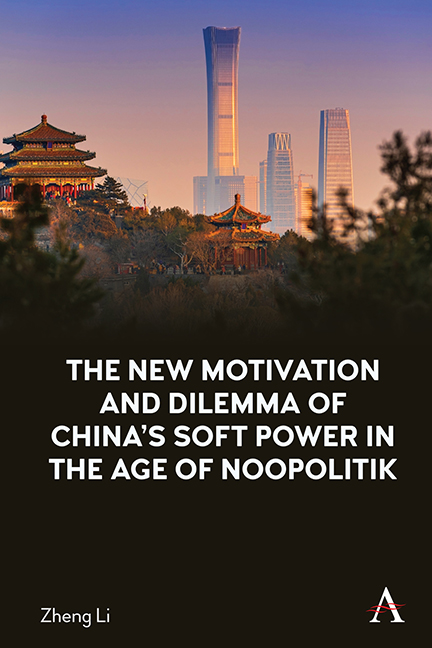Book contents
- Frontmatter
- Contents
- List of Figures and Tables
- List of Abbreviations and Acronyms
- 1 The Anti-Corruption Campaign and the Chinese Dream
- 2 Debating Governance and the Rule of Law: China’s Narrative and Images in Western Countries
- 3 Soft Power and Sharp Power in the Age of Noopolitik
- 4 Methodology
- 5 The Framing of Governance: the China Model and the Chinese Dream
- 6 When ‘House of Cards’ Meets ‘in the Name of People’: Framing China’s Anti-Corruption Campaign
- 7 Discussion and Conclusion
- Notes
- References
- Index
7 - Discussion and Conclusion
Published online by Cambridge University Press: 06 October 2022
- Frontmatter
- Contents
- List of Figures and Tables
- List of Abbreviations and Acronyms
- 1 The Anti-Corruption Campaign and the Chinese Dream
- 2 Debating Governance and the Rule of Law: China’s Narrative and Images in Western Countries
- 3 Soft Power and Sharp Power in the Age of Noopolitik
- 4 Methodology
- 5 The Framing of Governance: the China Model and the Chinese Dream
- 6 When ‘House of Cards’ Meets ‘in the Name of People’: Framing China’s Anti-Corruption Campaign
- 7 Discussion and Conclusion
- Notes
- References
- Index
Summary
Introduction
In the previous chapters, I have presented the findings of media reports and in-depth interviews. This chapter aims to discuss the findings that emerged from the analyses and explore factors of significance. After addressing each research proposition and question, I will present my conclusion at the end of the chapter. Theoretical implications and their significance in terms of soft power, framing analysis, and China's public diplomacy will be explained based on the discussions presented in the ensuing sections. After this, I discuss the limitations of this project and the prospects for future research in related areas.
Congruity of Findings from the Newspapers
The study analyzed 400 reports from selected newspapers. Of these, 179 are from Australian newspapers and 221 are from China’s. Next, I will discuss the frames and packages that have been identified from the reports and examine their congruity.
Congruity of the frames about China's domestic governance
China's domestic governance in the China's newspapers
According to the frame packages, China is certainly satisfied with, or even proud of, its progress over the past few decades. The two frame packages also reflect the intention to promote the governance model. The China model refers to a series of discussions on the principles, features, and advantages of the governance approach. The frame package Alternative path reflects China's intention to promote its political model overseas and use it as a part of soft power. The intentions implied by the findings resonate with the theory espoused by Chitty (2017) and Vuving (2009): that if a country's governance performance is exceptional, it will be rewarded with the admiration of other countries and yield external soft power accordingly. Louw (2013) agrees, adding that China's state-led model and its economic success are highly appealing to other developing states. However, it should be noted that China holds an uncertain and perplexing attitude regarding model promotion. The frame Role model? Reflects the inconsistent stance of media reports. Twenty-four reports queried the feasibility that other countries could learn from China's experience or apply its governance model. As a result, the newspapers have expressed conflicting opinions but there is a detectable tendency that China increasingly considers its model as soft power, as shown in Figure 10.
- Type
- Chapter
- Information
- The New Motivation and Dilemma of China's Internal Soft Power in the Age of Noopolitik , pp. 147 - 174Publisher: Anthem PressPrint publication year: 2022



